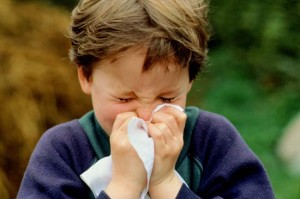Influenza refers to a viral infection that targets the upper respiratory system which includes the nose, throat and lungs.
Treatment
In order to alleviate the symptoms of flu, you will not need anything more than plenty of bed rest and fluids. However, if symptoms begin to worsen, your doctor may advise you to take certain medications such as zanamivir 
You will have to inhale zanamivir through a pump-like device, just like an asthma patient’s inhaler. Please bear in mind that people suffering from respiratory disorders or illnesses such as lung disease or asthma, should not take zanamivir to treat their flu. Oserltamivir on the other hand, is an oral medicine which may produce side effects in teenagers such as self-harm and confusion. Certain antivirals also produce side effects such as nausea and vomiting.
If you take these drugs as soon as the symptoms of influenza kick in, you may be able to shorten the period of the illness and also prevent major symptoms from taking place.
There are some strains of influenza virus that are resistant to oseltamivir and amantadine and thus, these drugs will not be effective on such viruses.
Self-help tips
- Drink plenty of fluids during your flu. This can include plenty of water, broth, soups, juice etc. to prevent dehydration from taking place. You will know that your diet includes adequate fluids by the color of your urine—it should be either pale yellow or clear.
- Get plenty o rest. This will allow your immune system to combat infection causing viruses.
- Take pain relievers. Over-the-counter pain relievers such as ibuprofen or acetaminophen may reduce the body pain and headaches caused during the illness. However, you should NOT give aspirin to young children and even teenagers as it may increase the chances of developing Reye’s syndrome—which is a rare but extremely harmful disease.
Prevention
- It is recommended that you receive an annual flu shot and get your children of above 6 months vaccinated as well. An annual flu shot is necessary as each year covers three viruses that may be potentially harmful and prevalent in the flu season of the year. You may receive the vaccine in nasal spray or injection form.
- Control the spread of infection. Since the yearly flu shot isn’t 100% fail-safe due to new strains of viruses, it is important that you take certain measures in order to reduce the risk of infection:
- Wash your hands regularly with soap and water. This is supposed to the best way you can prevent the spread of infection to yourself and to others. It is important that you thoroughly wash and scrub your hands for at least 15 seconds with soap and water. Consider the use of alcohol-based hand sanitizers while travelling, working or in cases where water isn’t available for hand washing.
- Cover your nose and mouth while you cough or sneeze. Avoid using your hands to cover your mouth and instead, use disposable tissues or your elbow. Dispose off used tissues and avoid re-use. If you have coughed into your hands, avoid touching anybody or anything, if possible, until you wash your hands.
- Try to stay away from crowds as much as possible. In crowded areas, the collection of viruses allows infection to spread easily. Some examples of crowded areas include schools, day care centers, auditoriums, buses and other means of public transportation. It is obvious that avoiding crowds is almost impossible for school children and working people, therefore, it is best if you simply try to avoid crowds as much as possible during flu season in order to lessen your risk of developing influenza.
Learn More
To learn about more serious breathing and medical emergencies take St Mark James first aid and CPR classes. Our training partners are located throughout Canada in convenient locations with great programs and instructors.
